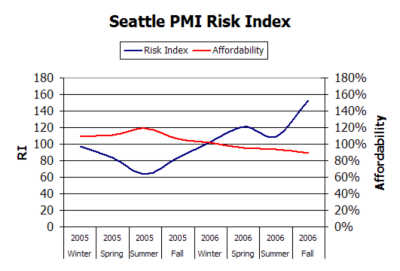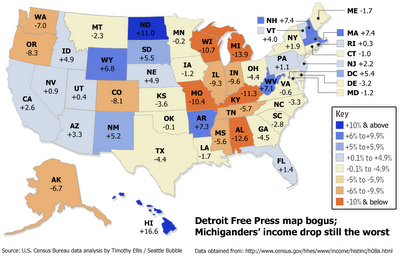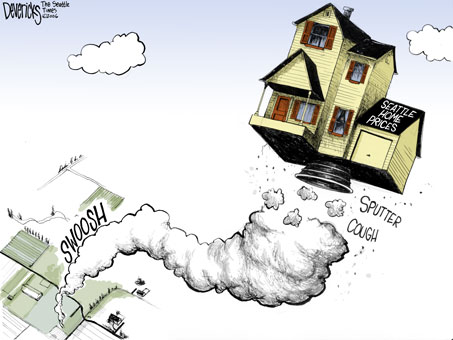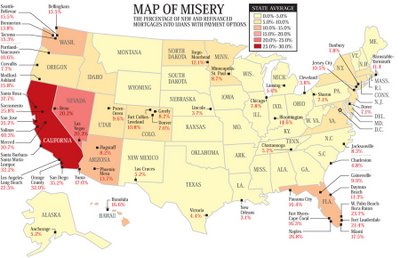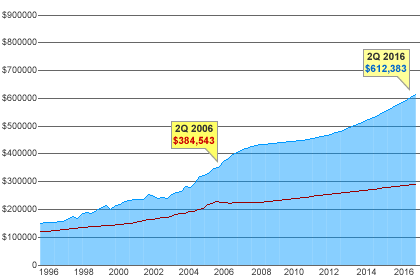The Mother of all Weekend News
Refinancing & Purchasing may have just become a bit tougher
In my opinion, of all the pieces written on the market, this one by syndicated columnist Ken Harney has the potential to really put the hammer down on mortgage qualifying under no-doc, low-doc or 'stated-income' loan products ('oft referred to as liar loans). The impact and ramifications of this little change initiated by the IRS is surely going to, at minimum, put concern into borrowers who have purchased a year or so ago and are looking to refinance again in the near future (read: those with ARM's and HELOC's).
There has been much discussion about the impact of non-traditional loan products that are driving the market, including the article The Tim refers to in the prior post. To pass the muster test, one should really ask the question, "if you take away the stated-income and 100% nothing down purchase loans used to purchase scores of homes across the country, where would the market be?" It would be a much different market and my income including many allied real estate professionals would be, well, less.
On Monday the IRS will be initiating an electronic mechanism to speed up audits on Form
4506 -T, which every borrower signs just prior to closing (and of which I am very familiar with in assisting clients with signing closing and lending paperwork).
The form authorizes the lender or the investor providing the money for the mortgage to obtain transcripts from the IRS summarizing the borrowers income and tax data for four years. The form must be signed by the borrower and can be used only during the 60-day period following the date of signing.This development is huge.
By electronically (via secure internet I presume) allowing lenders to obtain IRS tax data on the borrower in only a business day or two will dramatically speed up audits and could potentially stop refinance and purchase closings dead in their tracks BEFORE the transaction closes—if data from the IRS is "curiously" different from what the borrower claims as income. This is huge. And, it is huge in that it will reduce F-R-A-U-D.
And it is big news for the following observations:
1) I think back on all the 100% borrowers that closed purchase transactions through our own office and across the country. Many will be refinancing again.
2) I think back on all the refinance business closed over the last three years, 2005 in particular. Many refinanced into other ARM products and increased their base loan amounts higher than that of their original mortgage Note (for debt consolidation, among other things of bling bling nature).
3) Forget about market conditions for the moment: If these borrowers refinance again, they will no longer be able to go 'no-doc or stated-income' without the potential for scrutiny by a quick IRS electronic audit, prior to closing. In other words, many will not be able to refinance, due to income discrepancies--including the potential to see prior IRS 1040 income which may not have jived with the EXISTING loan in which the borrower is trying to refinance again. In other words, it could trigger the potential to see earlier fraud.
If that's not enough,lending standards, outside of the IRS audit conduit, may make it difficult enough. Read below!
Federal Banking Regulators are poised to tighten lending standards as guidelines were published last week by the Office of the Comptroller of the Currency.
From Inman News: Testifying before members of the Senate Banking Committee last week, Kathryn E. Dick, deputy comptroller of the Office of the Comptroller of the Currency, said, "Underwriting standards that do not include a credible analysis of a borrower's capacity to repay their entire debt violate a fundamental principle of sound lending and elevate risks to both the lender and the borrower.Obviously I'm no fan of a difficult market, but it appears that the "perfect storm" analysis just might have more merit than I'd like to believe. This is one call where I really hope to be wrong.
That could mean fewer borrowers will qualify for nontraditional loans that many in the banking and real estate industry say have helped buyers purchase homes they would not have been able to afford using a traditional mortgage.
